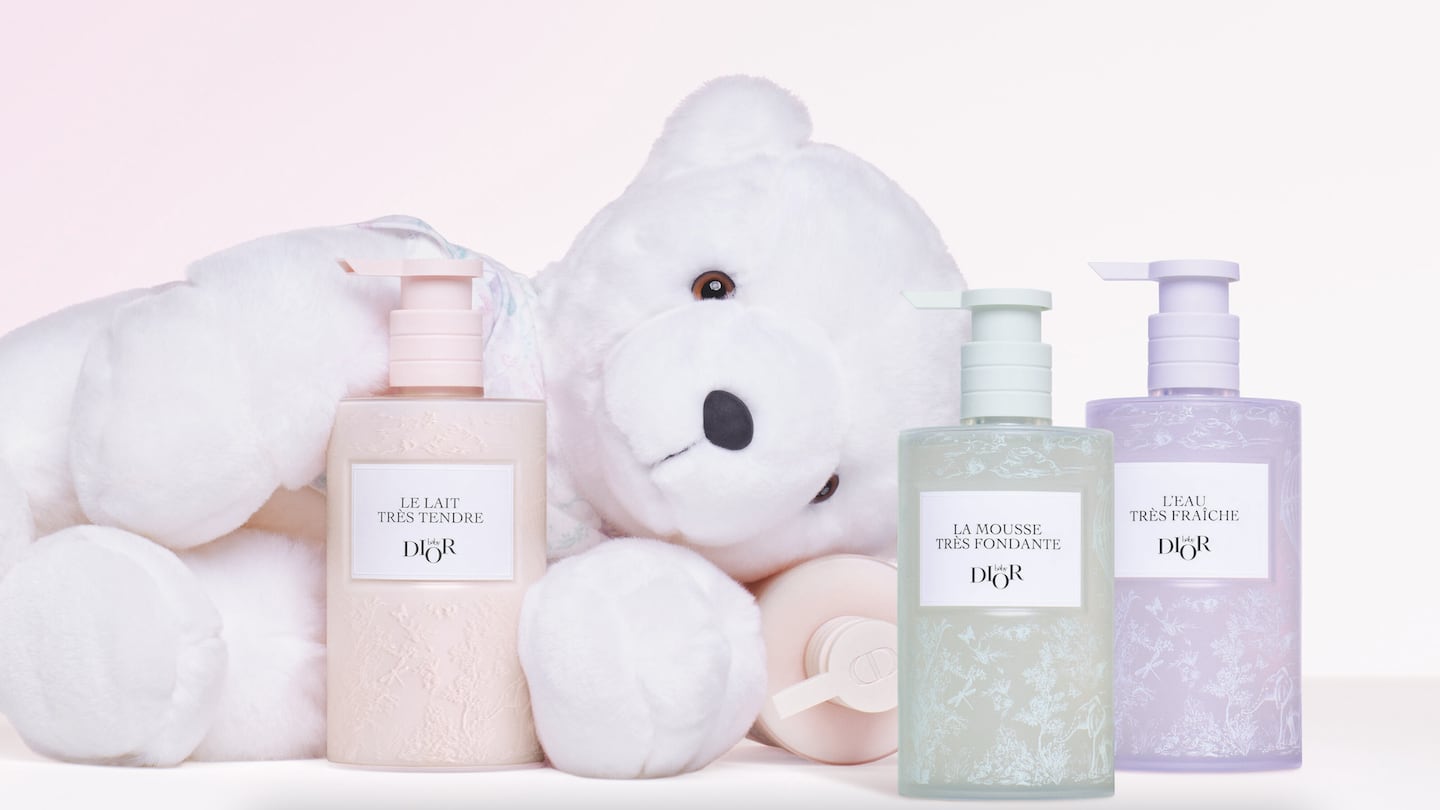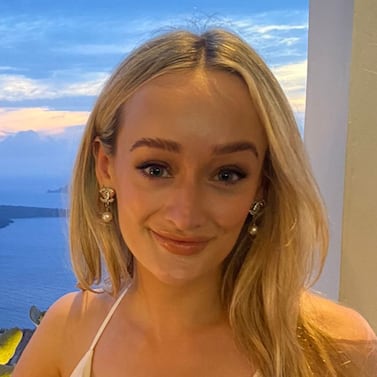
The Business of Fashion
Agenda-setting intelligence, analysis and advice for the global fashion community.

Agenda-setting intelligence, analysis and advice for the global fashion community.

Would you buy a $230 dollar fragrance for your newborn baby?
Luxury strollers, designer clothes and even premium baby food are all de rigueur in well-heeled parenting circles, but the launch of Dior’s new Bonne Étoile fragrance, priced at $230 and scented by legendary perfumer Francis Kurkdjian, may rise eyebrows at daycare.
However, the fragrance — which is part of a wider range of luxury baby beauty products, including cleansing and moisturising lotions with jojoba esters priced from $95 — is not really an outlier. Last year, Hermès released an option for children aged three and up, Cabriole, priced at $116. In a press release, Christine Nagel, director of creation and olfactory heritage, said she sought to “create a comforting and highly distinctive scented water that signifies the bond between parent and child.”
Thameen, a British niche fragrance line, has three perfumes for babies. Bulgari, the jewellery-cum-beauty line, has an option for infants priced at $76, while Guerlain is set to relaunch its Guerlain Petites line next year. Harrods carries perfumes from the dedicated children’s lines Sophie La Girafe and Tartine et Chocolat. There’s also mass-market options such as Mustela and Nenuco.
ADVERTISEMENT
Board-certified dermatologist Dr. Ranella Hirsch said that in many cultures, including parts of Europe and Latin America, scenting babies is the norm and has been for generations.
Alice du Parcq, a fragrance journalist, described them as “a tiny little flicker of luxury and decadence” in the chaotic early days of motherhood.
Most baby perfumes are what’s known as an “eau de senteur,” which is more akin to a water than a traditional perfume. Free from alcohol or essential oils, it’s less likely to irritate a baby’s delicate skin, which Dr Hirsch said makes them generally safe. “For those who want to use them, or have the cultural desire to partake, they are fine,” she said.
They might sound like an indulgence for only the most pampered infants, but they’re also a way for brands to build an even deeper and more personal relationship with a new generation of shoppers. Fragrance companies have long relied on the uniquely evocative and emotional power of scent both as a marketing tool and a raison d’être. Neuroscientists theorise that scent takes a more direct path to the brain’s limbic system, which deals with emotion and memory, giving it potent nostalgic and mood-making power. Perfumes, by that logic, are a fast pass to accessing memories or setting a mood.
And a scent that’s reminiscent of the peaceful, idyllic days of childhood? Now that smells like money.
Dior first launched Baby Dior fashion line in the 1960s, with a now-discontinued cologne arriving in the 1970s. Many fashion houses make clothes for children, from Gucci to Fendi, and the likes of Dr. Barbara Sturm and Chantecaille have also created prestige skincare ranges for the junior set.
Millennials — those born between 1981 and 1996 — are now the primary generation of newly minted parents. They’re also a generation obsessed with beauty and spend big on it. Many came into adulthood with beauty influencers as their constant companions and watched many of their favourite celebrities become beauty-brand founders, too. In a sense, treating their little ones to a beauty routine of their own likely feels natural. They’re also a generation very comfortable with the idea of self-care.
“A scent is a great way for mother and child to bond,” said Eudora Nwasike, a fragrance specialist.
ADVERTISEMENT
Rituals like baby massage are becoming more commonplace, as parents seek ways to introduce their children to the world of wellness. That’s not a far jump to the world of fragrance, said Nwasike, pointing out that many turn to fragrances as a mood booster.
“Doing a little ritual that gives a sense of bonding and closeness becomes something you look forward to every day,” said du Parcq.
So-called baby perfumes might also be more for mother than for child. Postpartum, mothers can often feel overwhelmed and overstimulated, said du Parcq, recalling her own experience of feeling vulnerable.
“You feel as if someone has taken a potato peeler to you and shredded your skin … you feel exposed and highly emotional,” she said.
A traditional perfume, with heavy fragrance notes and designed to cling to the skin all day, might turn one’s stomach, said du Parcq. “These very light, very soft perfumes are much more preferable,” she explained. “[These perfumes] look like they’re designed for babies. But most of the time, it’s the parent who wears them.”
However, Nwasike highlighted the need for brands to communicate that their product is in fact different to traditional perfumes and, crucially, safe. Saying that she’d seen negative comments on social media around the new Dior Bonne Étoile, Nwasike said companies should be careful to delineate how safe and gentle their offerings are. “Brands need to take an educational stance and communicate that they’re hypoallergenic,” she cautioned.
As well as mood and emotion, the idea of legacy is important in fragrance. On her series hosted on Instagram, “Desert Island Spritz,” du Parcq explained, “People often share how important a fragrance from their childhood or youth is.”
A fragrance used from childhood could thus form lifelong loyalty, she added. “I think fragrance brands are trying to build on their heritage … they want to take what they’ve done in the past, make it modern and continue that story for a new generation.”
ADVERTISEMENT
While emerging lines of the early 2010s were able to disrupt the landscape thanks to lower barriers of entry, new-to-market labels face a tougher road ahead as they struggle to carve out their niche and raise capital in a tough economy.

Daniela Morosini is a Beauty Correspondent at The Business of Beauty at BoF. She covers the global beauty industry, with an interest in how companies go to market and overcome hurdles.
As awareness grows about the perils of sleep deprivation, beauty and wellness brands are flooding the market with an array of products to cash in on the booming opportunity.
Going public is usually a pivotal moment in a company’s history, cementing its heavyweight status and setting it up for expansion. In L’Occitane’s case, delisting might be a bigger conduit for growth.
Brands say they’re barreling ahead with marketing and commerce on the app, even as the clock starts ticking for owner ByteDance to sell it or shut it down.
The Spanish beauty and fashion conglomerate’s smart acquisitions and diverse portfolio could be a big draw for investors. Plus, Adidas is set to confirm its stellar first quarter.